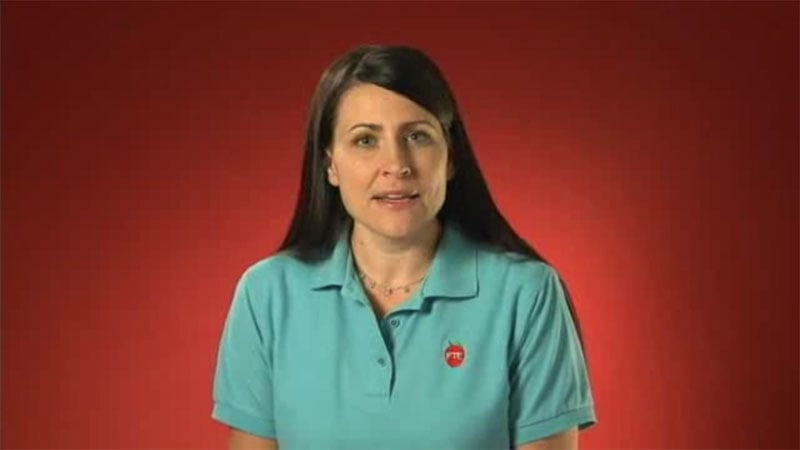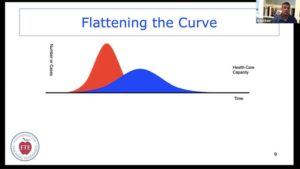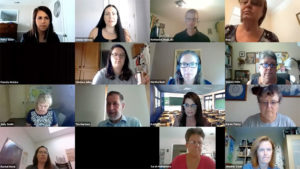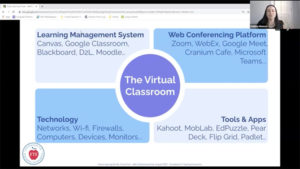
Despite closures of high schools across the country due to the COVID-19 outbreak, TFAS high school programming division, the Foundation for Teaching Economics (FTE) is working hard to help economics teachers adjust to the newly adopted distance learning environment. Over the last four months, more than 1,350 educators have tuned in to FTE webinars on the economic implications of COVID-19, as well as workshops on how to create an interactive virtual classroom.
Learning is social. FTE makes this happen through their hands-on lessons and their adaptability to our new distance learning challenges.” – FTE Online Workshop Participant
Through a series of webinars early this spring, teachers received insights from economists across the country on topics ranging from the economic policy response to the coronavirus pandemic, to economic freedom and pandemics in American history. Featured speakers included Clemson University Professor Scott Baier, Hoover Institution economist Dr. Russ Roberts and University of Arizona Professor Price Fishback.

In addition to these informative webinars, FTE also hosted a series of interactive online workshops titled “Active Learning Can Be Virtual, Too!” for teachers this August. Over the course of the month, FTE faculty discussed best practices for creating an active virtual learning environment and shared the tools that made FTE’s summer Economics for Leaders (EFL) virtual programs a success.
These workshops bring teachers the resources they need to help students better understand and incorporate the importance of economic freedom into their everyday lives by showing how interactive, highly engaging FTE economics games and simulations can be translated to an online platform.
One workshop of the series focused on how teachers can best utilize web conferencing tools like Zoom, Google Meet or WebEx to facilitate FTE lessons and simulations virtually. The two-hour interactive webinar highlighted the conferencing features FTE instructors found most effective through this summer’s EFL programs. FTE Curriculum Director Debbie Henney told participants that positive student feedback on the virtual programs is what ultimately inspired the FTE team to create the three-part online workshop series for teachers.

“By the end of the first week of the virtual Economics for Leaders program, the feedback was amazing,” Henney said. “We found out that it is possible to take the active learning games, simulations and teaching style that FTE is known for in those summer programs and do it in a virtual environment, and we wanted to show our teachers what we learned.”
Another workshop gave participants a tutorial on PearDeck, a presentation slide add-on that allows teachers to make PowerPoint or Google Slides presentations live and interactive for students. Several teachers praised the workshop’s hands-on nature, saying it gave them the chance to experience these platforms for themselves.
“Although I thought we would just be previewing the PearDeck versions of various FTE lessons, this was actually more hands-on teaching of how to use PearDeck itself,” said one participant. “I ended up having the chance to learn what I needed to enhance my own lessons.”
We found out that it is possible to take the active learning games, simulations and teaching style that FTE is known for in those summer programs and do it in a virtual environment, and we wanted to show our teachers what we learned.” – Debbie Henney, FTE Director of Curriculum
Participants received additional hands-on training in the final workshop of the series, which included a tutorial on MobLab, an online educational platform that allows teachers to schedule surveys, games and experiments for their classes. During this workshop, teachers set up their own MobLab accounts and learned how to run simulations that students play live from their own computers or mobile devices, encouraging a more interactive and social virtual learning environment.

“Learning is social,” said one teacher. “FTE makes this happen through their hands-on lessons and their adaptability to our new distance learning challenges.”
Though adapting to distance education amid the COVID-19 outbreak has its challenges, FTE’s successful virtual EFL summer programs are a testament to the effectiveness of online learning tools. FTE Executive Director Ted Tucker said that the response to this summer’s program has proven that online education can meet the challenge of engaging students.
“In addition to keeping students engaged, technology has enabled us to address the other criticism of online education: faculty training,” Tucker said. “In just the last four months, through web conferencing platforms, we have introduced over 1350 teachers to resources on how to teach about COVID-19 and how to use technology to transform their virtual classroom into a vibrant interactive learning environment.”

